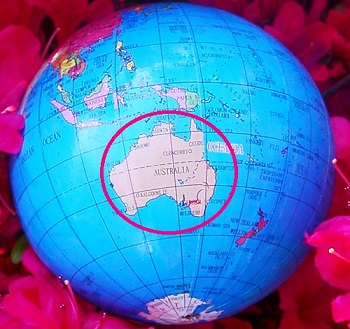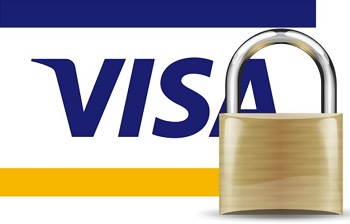Tokenization could help make mobile payments in Australia more secure for businesses and consumers
Visa has begun rolling out a new tokenization initiative in Australia. Tokenization is a relatively new trend that has begun to emerge in the mobile payments field. It involves replacing a consumer’s personal and financial information with digital tokens, which can be used to authenticate mobile transactions. These tokens add a new layer of security to mobile payments, as they do not contain financial information, which makes them a less attractive target for those that would seek to exploit such information.
Tokens bring a new layer of security to the mobile space that is difficult to break through
Digital tokens take the form of a unique, 16-digit number. This process is becoming more popular in the mobile payments market due to the risks that exist in the digital world. Over the past few years, cyber attacks against companies that support mobile commerce, and consumers that partake therein, have increased. With cyber attacks becoming more common, businesses are looking for better ways to protect themselves and their customers. Visa is one company that is offering a solution to this problem.
Stolen tokens are largely useless to hackers
 Visa is making its tokenization technology available in Australia, which could help foster the growth of mobile payments in the country. Visa notes that if tokens are actually stolen by malicious parties, it cannot be used elsewhere, and tokens can be deactivated in a quick manner. Tokens are generated in and are unique to every payment environment, which means that they cannot be used on other platforms unless they are generated for that platform specifically.
Visa is making its tokenization technology available in Australia, which could help foster the growth of mobile payments in the country. Visa notes that if tokens are actually stolen by malicious parties, it cannot be used elsewhere, and tokens can be deactivated in a quick manner. Tokens are generated in and are unique to every payment environment, which means that they cannot be used on other platforms unless they are generated for that platform specifically.
Australia’s mobile payments space could experience growth due to the incorporation of token technology
Security has long been a serious problem for the mobile payments space. Because of the relative youth of this sector, security measures have not yet caught up with the risks that exist therein. Tokenization could help make mobile payments more attractive to consumers and businesses, many of whom believe that participating in mobile commerce is a risk to their financial information.
Customers who are traveling may soon find it easier to charge their purchases with this added layer of protection.
When Visa customers travel to another country, a new mobile security feature from the credit card issuer may make it easier for them to be able to prevent fraudulent charges or having to overcome the automatic protection barriers that the bank may implement when trying to make a purchase.
The strategy is meant to make it easier, safer, and more convenient for Visa customers to shop abroad.
Travelers currently need to call their banks to tell them that they will be traveling, and where, or they risk having their cards frozen from the first moment that they are used in a foreign country. Visa is hoping to be able to prevent both of those occurrences from being required by using mobile security to be able to track the customer’s location and know that he or she is the one who is using the credit card when it is swiped at any terminal in the world.
The mobile security service uses geolocation technology to verify the customer’s position when a card is swiped.
 This lets Visa check to make sure that the customer and the card are in the same place when a purchase transaction is attempted on the card. This is done by checking the location of the customer’s mobile device. Should there ever be a mismatch, additional security measures will be taken in order to help to determine whether or not it is a legitimate purchase attempt, without necessarily cutting off the card, right away. This way, if a smartphone is left in a hotel room, it doesn’t necessarily mean that the customer will be without the use of his or her cards.
This lets Visa check to make sure that the customer and the card are in the same place when a purchase transaction is attempted on the card. This is done by checking the location of the customer’s mobile device. Should there ever be a mismatch, additional security measures will be taken in order to help to determine whether or not it is a legitimate purchase attempt, without necessarily cutting off the card, right away. This way, if a smartphone is left in a hotel room, it doesn’t necessarily mean that the customer will be without the use of his or her cards.
This method of using the location of the mobile device makes it less likely that a bank will be required to mistakenly decline a transaction that looks suspicious but that is actually legitimate. The company is working its mobile security feature into a module. This way, banks can incorporate it into their own mobile banking apps. Then, when a customer travels and tries to use the card, a partner of Visa, Finsphere – a geospacial analytics company – pings the app in order to be able to locate the customer’s device. That finding is then reported to Visa to see if it is a match.
 Visa is making its tokenization technology available in Australia, which could help foster the growth of mobile payments in the country. Visa notes that if tokens are actually stolen by malicious parties, it cannot be used elsewhere, and tokens can be deactivated in a quick manner. Tokens are generated in and are unique to every payment environment, which means that they cannot be used on other platforms unless they are generated for that platform specifically.
Visa is making its tokenization technology available in Australia, which could help foster the growth of mobile payments in the country. Visa notes that if tokens are actually stolen by malicious parties, it cannot be used elsewhere, and tokens can be deactivated in a quick manner. Tokens are generated in and are unique to every payment environment, which means that they cannot be used on other platforms unless they are generated for that platform specifically.
 This lets Visa check to make sure that the customer and the card are in the same place when a purchase transaction is attempted on the card. This is done by checking the location of the customer’s mobile device. Should there ever be a mismatch, additional security measures will be taken in order to help to determine whether or not it is a legitimate purchase attempt, without necessarily cutting off the card, right away. This way, if a smartphone is left in a hotel room, it doesn’t necessarily mean that the customer will be without the use of his or her cards.
This lets Visa check to make sure that the customer and the card are in the same place when a purchase transaction is attempted on the card. This is done by checking the location of the customer’s mobile device. Should there ever be a mismatch, additional security measures will be taken in order to help to determine whether or not it is a legitimate purchase attempt, without necessarily cutting off the card, right away. This way, if a smartphone is left in a hotel room, it doesn’t necessarily mean that the customer will be without the use of his or her cards.